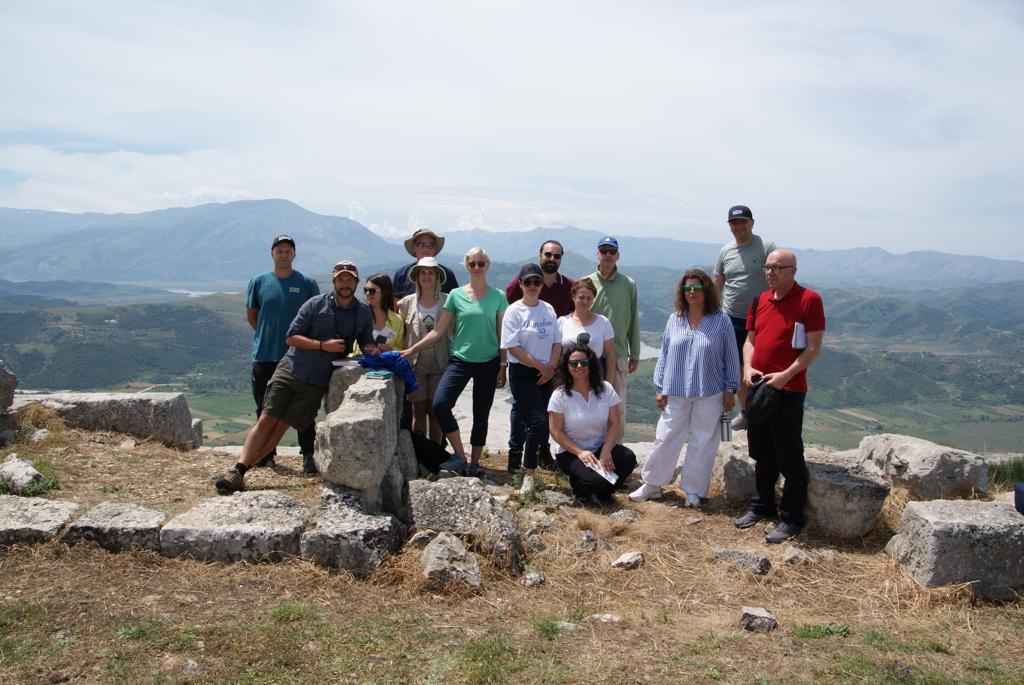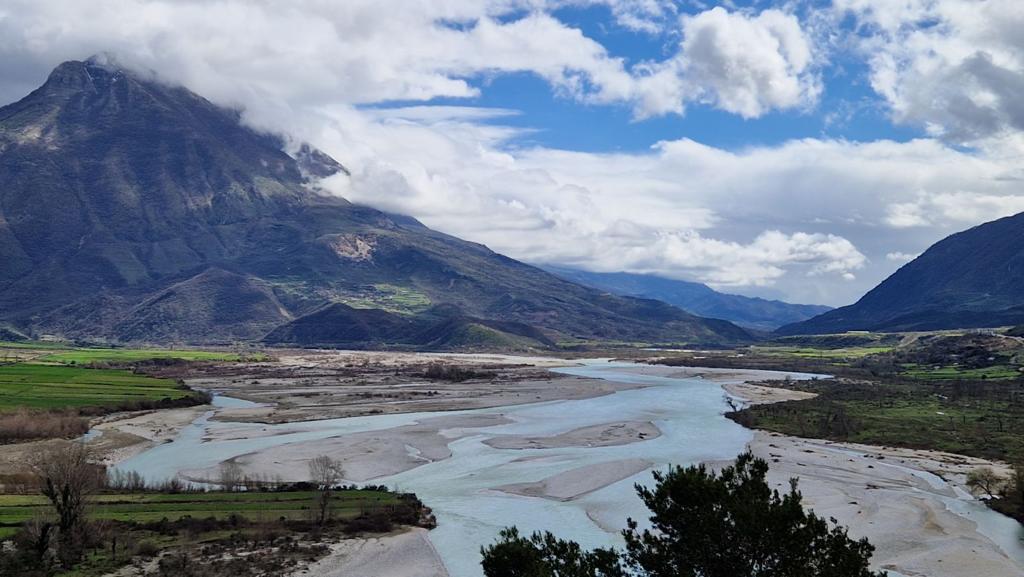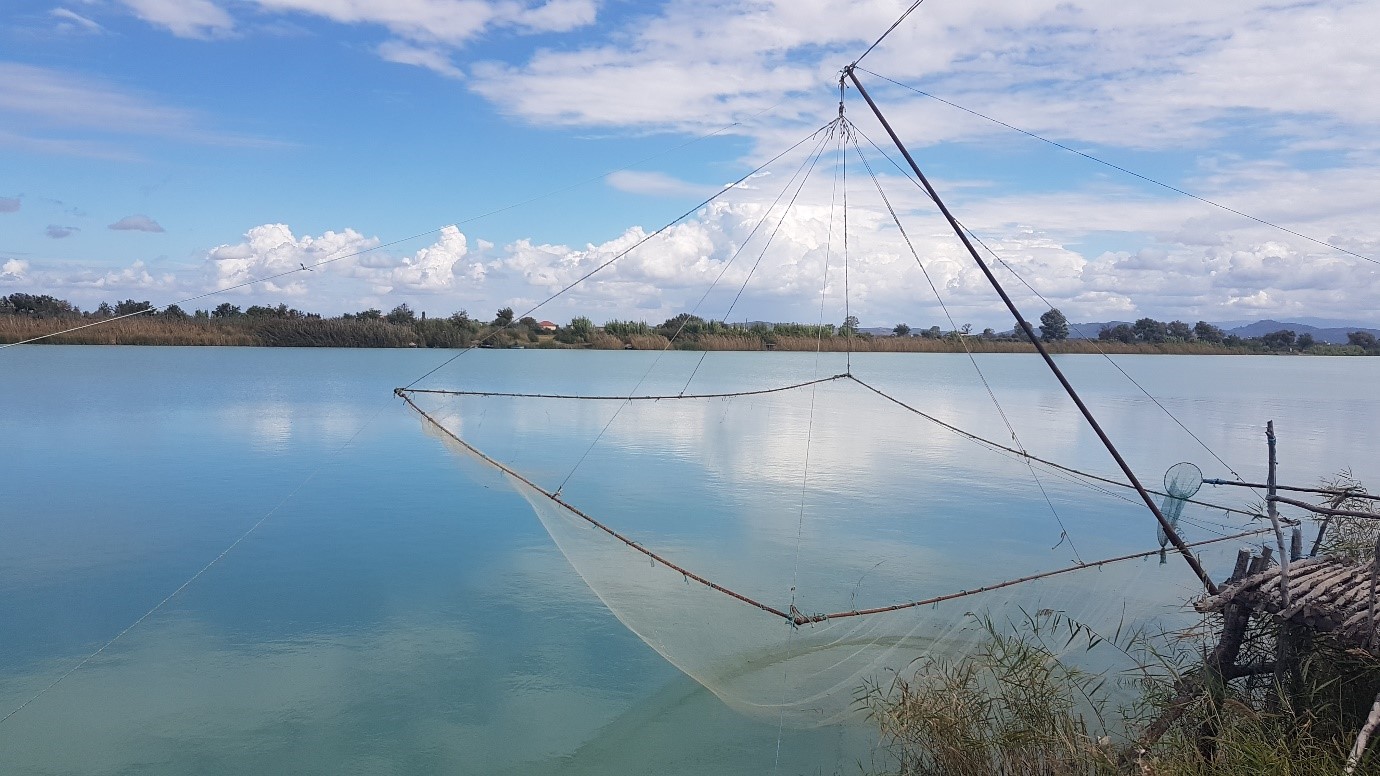The Vjosa River in Albania was declared a National Park on 15 March 2023, obtaining the status of IUCN’s Protected Area Management Category II. “This means that the Vjosa is protected to the highest international standards that ensure its ecological integrity, allowing natural processes to occur, and sustaining populations of all native species”, clarifies Ulrika Åberg, IUCN Programme Officer for Protected and Conserved Areas. The Vjosa River and floodplain is one of the most magnificent fluvial and riparian ecosystems in the Balkans, home to over 1,100 species of animals, and 15 species (13 animals and 2 plants) assessed as globally threatened on the IUCN Red List of Threatened Species. These include among others Egyptian Vultures, Long-fingered Bats, European Eel, Adriatic Sturgeon, and Queen Olga's Snowdrop.
The study tour brought a group of experts to the Vjosa Valley from 9 to 16 June to get to know its landscape and key stakeholders, to get inspired, and explore opportunities for the preparation of the integrated management plan. A first round of stakeholder meetings was held in the towns of Përmet, Këlcyra, Tepelenë, and Vlorë, as well as in Tirana.
The key next step is to work with the national authorities, namely the Ministry of Tourism and Environment and the National Agency of Protected Areas, and other experts to prepare a National Park Management Plan, in consultation with different stakeholder groups. It will be aligned with global standards, such as the IUCN Protected Area Management Categories and Guidelines for their application and the IUCN Green List Standard for effective area-based conservation.
“A management plan is a document which sets out the management approach and goals, together with a framework for decision making, that will be applied in a specific protected area over a given period of time”, explains Anna Kovarovics, E.C.O. Institute of Ecology who is leading the process. “For us, it is critical to ensure the widest possible consultation with stakeholders, so we can develop the integrated management plan and define its objectives in a participatory way, taking into account all voices that have an interest in the use and ongoing survival of the Vjosa Valley”, she adds.
“The consultation of the future management plan with the Vjosa Valley residents is crucial”, agrees Daniel Pirushi, Director of the National Agency of Protected Areas of Albania. “Community engagement has many benefits - it helps build the understanding of the local community of various issues that impact their lives, regions, towns, and neighbourhoods, and it helps foster a sense of purpose while building social connections within the community. Additionally, community engagement offers a support network for all individuals and provides opportunities for alternative sources of sustainable income that are inclusive and culturally appropriate. This consultative process will empower the community in their important role – to lead us in creating a more sustainable and well-managed protected area. With the people, for the people,” concludes Pirushi.




